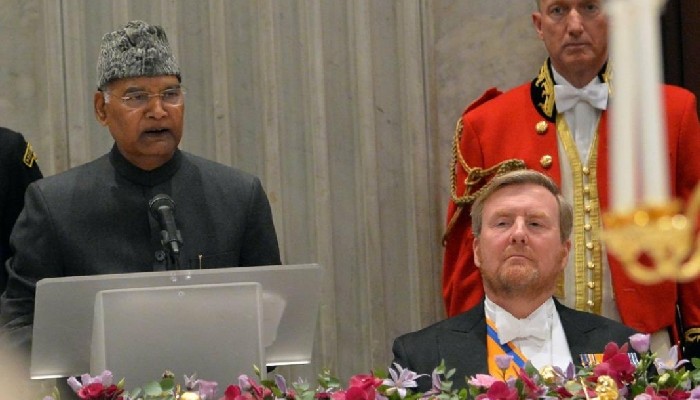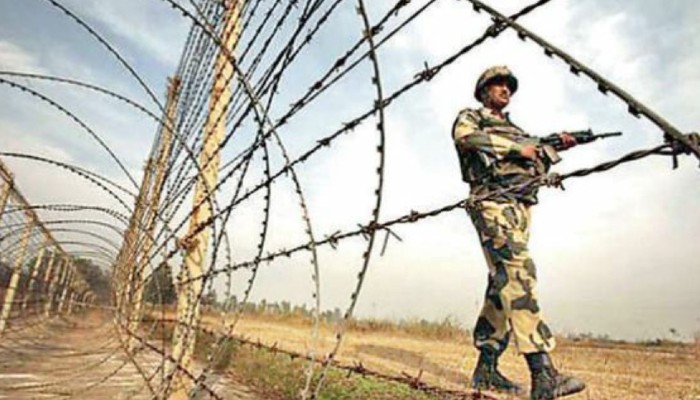Jammu and Kashmir has shown considerable improvement in public health parameters against the corresponding national average for last few years
In a clear indication of achieving significant progress, erstwhile Jammu and Kashmir State has shown considerable improvement in public health parameters against the corresponding national average for the last few years.
According to the recently released state wise fact sheet by National Health Systems Resource Centre (NHSRC), New Delhi on the basis of National Sample Survey Organization (NSSO) 75th round report, J&K has significantly improved its performance in outpatient care, in-patient care, child birth, Antenatal Care (ANC), Post Natal Care (PNC) by utilizing its existing Public Health Facilities and Out Of Pocket Expenditure (OOPE).
As per the highlights of the report, all women in Jammu and Kashmir are availing Antenatal Care (ANC) services, out of which 80-92 percent services are being provided by Public Health Facilities, which is higher than the national average.
The trend of availing Post Natal Care (PNC) has also increased from 81 to 99 percent and there is a significant increase in utilization of public health facilities for availing PNC services from 60 to 97 percent since 2014.
Over 96 percent Inpatient Department (IPD) care in rural areas of J&K is provided by Public Health Facilities, which is highest against the country’s average of 85 percent. The overall proportion of hospitalized persons (IPD) per 1000 patients has significantly decreased (10-15 percent) since 2014 and is less than national average in both rural and urban areas, the report said.
In 2016, according to the data released by the Registrar General of India custodian of census data, Jammu and Kashmir has surpassed Kerala with the highest life expectancy in India for all ages, barring life expectancy at birth.
Pointing towards good health-seeking behaviour, J&K has emerged as one of the top performers in terms of the utilization of the Public Health Facilities, as 80 percent people avail OPD services from Public Health Facilities, especially in rural areas, showing a 15-30 percent increase in OPD cases in the last few years.
As per the report, the number of ailing persons per 1000 population in rural areas is less than national average and use of informal care by non-hospitalized cases is also very low (<2 percent).
The report further says that 97 percent deliveries take place in the health facilities in J&K and is higher than national average, out of which more than 86 percent take place in Public Health Facilities.
“Home deliveries and private sector deliveries have significantly decreased since 2014 with only 10-15 percent taking place in private health facilities,” the report stated.
According to the report, the Out Of Pocket Expenditure (OOPE) per OPD patient in public and private facilities has significantly decreased in both Rural and Urban areas since 2014, besides the percentage of diagnostic and drug expenditure as a proportion of IPD medical expenditure has also decreased.
For tackling the issue of OOPE and fulfilling the commitment to make the healthcare services cashless in Public Health Facilities, Government of J&K is already implementing various interventions in mission mode, like streamlining the procurement of drugs and consumables, implementation of Pradhan Mantri Jan Arogya Yojana, through public and empanelled private hospitals for providing cashless IPD services to the golden card holders and operationalization of Health and Wellness Centres under Ayushman Bharat, free drug and diagnostic Initiatives, Janani Shishu Suraksha Karyakram, Rashtriya Bal Swasthya Karyakram, Revised National Tuberculosis Control Program, Biomedical Equipment Management and Maintenance Program and National Pradhan Mantri Dialysis Program.
All these initiatives are on the top agenda of the Financial Commissioner, Health & Medical Education and are being monitored on daily basis with the aim to reduce the burden of out of pocket expenditure (OOPE) and improve the healthcare delivery services provided by public health facilities in J&K.
(Courtesy: Kashmir Life)
n a clear indication of achieving significant progress, erstwhile Jammu and Kashmir State has shown considerable improvement in public health parameters against the corresponding national average for the last few years.
According to the recently released state wise fact sheet by National Health Systems Resource Centre (NHSRC), New Delhi on the basis of National Sample Survey Organization (NSSO) 75th round report, J&K has significantly improved its performance in outpatient care, in-patient care, child birth, Antenatal Care (ANC), Post Natal Care (PNC) by utilizing its existing Public Health Facilities and Out Of Pocket Expenditure (OOPE).
As per the highlights of the report, all women in Jammu and Kashmir are availing Antenatal Care (ANC) services, out of which 80-92 percent services are being provided by Public Health Facilities, which is higher than the national average.
The trend of availing Post Natal Care (PNC) has also increased from 81 to 99 percent and there is a significant increase in utilization of public health facilities for availing PNC services from 60 to 97 percent since 2014.
Over 96 percent Inpatient Department (IPD) care in rural areas of J&K is provided by Public Health Facilities, which is highest against the country’s average of 85 percent. The overall proportion of hospitalized persons (IPD) per 1000 patients has significantly decreased (10-15 percent) since 2014 and is less than national average in both rural and urban areas, the report said.
In 2016, according to the data released by the Registrar General of India custodian of census data, Jammu and Kashmir has surpassed Kerala with the highest life expectancy in India for all ages, barring life expectancy at birth.
Pointing towards good health-seeking behaviour, J&K has emerged as one of the top performers in terms of the utilization of the Public Health Facilities, as 80 percent people avail OPD services from Public Health Facilities, especially in rural areas, showing a 15-30 percent increase in OPD cases in the last few years.
As per the report, the number of ailing persons per 1000 population in rural areas is less than national average and use of informal care by non-hospitalized cases is also very low (<2 percent).
The report further says that 97 percent deliveries take place in the health facilities in J&K and is higher than national average, out of which more than 86 percent take place in Public Health Facilities.
“Home deliveries and private sector deliveries have significantly decreased since 2014 with only 10-15 percent taking place in private health facilities,” the report stated.
According to the report, the Out Of Pocket Expenditure (OOPE) per OPD patient in public and private facilities has significantly decreased in both Rural and Urban areas since 2014, besides the percentage of diagnostic and drug expenditure as a proportion of IPD medical expenditure has also decreased.
For tackling the issue of OOPE and fulfilling the commitment to make the healthcare services cashless in Public Health Facilities, Government of J&K is already implementing various interventions in mission mode, like streamlining the procurement of drugs and consumables, implementation of Pradhan Mantri Jan Arogya Yojana, through public and empanelled private hospitals for providing cashless IPD services to the golden card holders and operationalization of Health and Wellness Centres under Ayushman Bharat, free drug and diagnostic Initiatives, Janani Shishu Suraksha Karyakram, Rashtriya Bal Swasthya Karyakram, Revised National Tuberculosis Control Program, Biomedical Equipment Management and Maintenance Program and National Pradhan Mantri Dialysis Program.
All these initiatives are on the top agenda of the Financial Commissioner, Health & Medical Education and are being monitored on daily basis with the aim to reduce the burden of out of pocket expenditure (OOPE) and improve the healthcare delivery services provided by public health facilities in J&K.
(Courtesy: Kashmir Life)
 Contact Us
Contact Us  Subscribe Us
Subscribe Us









 Contact Us
Contact Us
 Subscribe
Subscribe
 News Letter
News Letter

